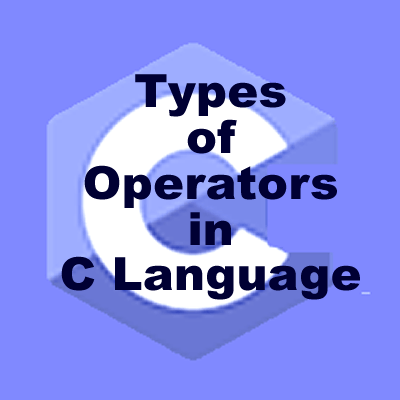Operators
These are the symbols which are used to perform some calculation or manipulation on values which may be in the form of variables, constants or expressions in a C program.
Operand
It is the variable, constant or expression on which an operator performs some calculation, comparison or some other manipulation.
Example
6+5
In the above example, 6 and 5 are operands. + is the operator which is performing addition of 6 and 5
4 Types of Operators in C
Operators are of various categories as
- Unary Operators
- Binary Operators
- Ternary Operator
- Special Operators
1. Unary Operators in C Language
Unary operators are those operators which have single operand. They are of following types:
a. Unary Plus (+)
It is used to specify that the number is positive. It is an optional sign because a number without any sign is automatically considered positive.
Example
+6, 45
b. Unary Minus (-)
It is used to specify that the number is negative.
Example
-6, -45
c. Pointer Operator (*)
It is known as pointer or pointer to operator. It is used to declare and use the pointer variable.
Example:
int *ptr;
**Above statement declares a pointer variable ptr of int type.
d. Address operator(&)
It is also known as “address” operator. It is used to store the address of a variable in pointer variable.
Example
int num=10,*ptr;
ptr=#
**Above statement stores the address of variable num in pointer variable ptr.
e. Increment (++) /Decrement (–) Operators
2. Binary Operators
These are the operators which can have two operands. Various categories of binary operators in C language are:-
3. Ternary Operator/Conditional operator
Conditional operator is also known as ternary operator.
This operator is known as ternary operator because it has three operands.
Ternary operator is represented as ?: .
Click here for complete topic.
Special operators
These operators are used for special purposes. There are many special operators provided by C language which are as follows:
